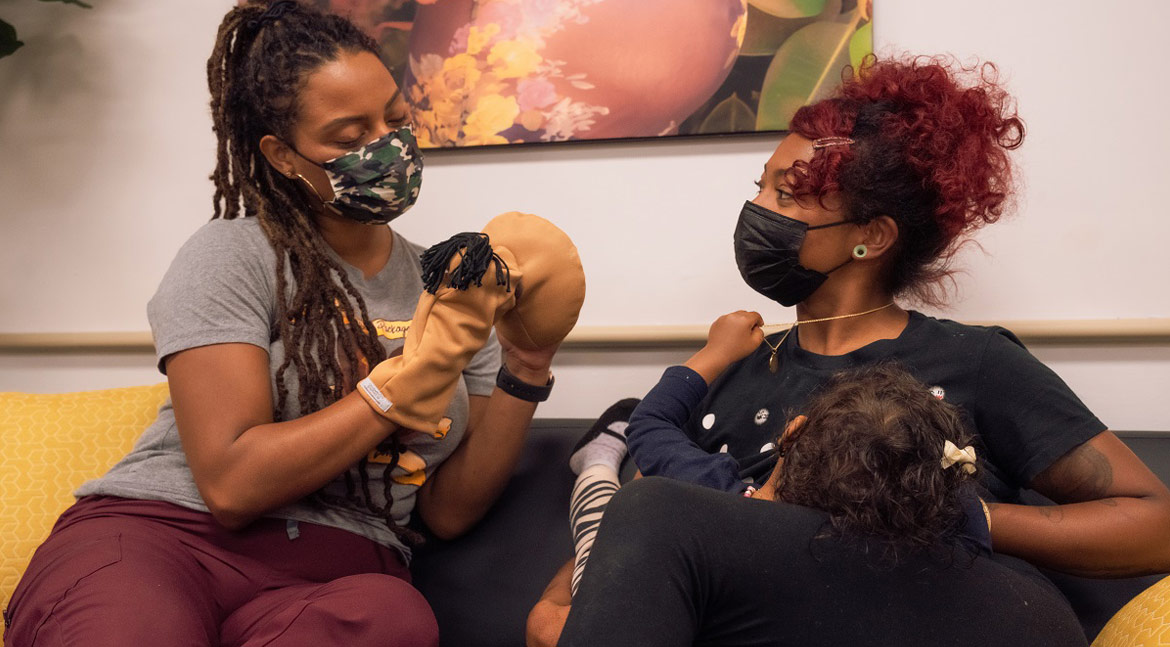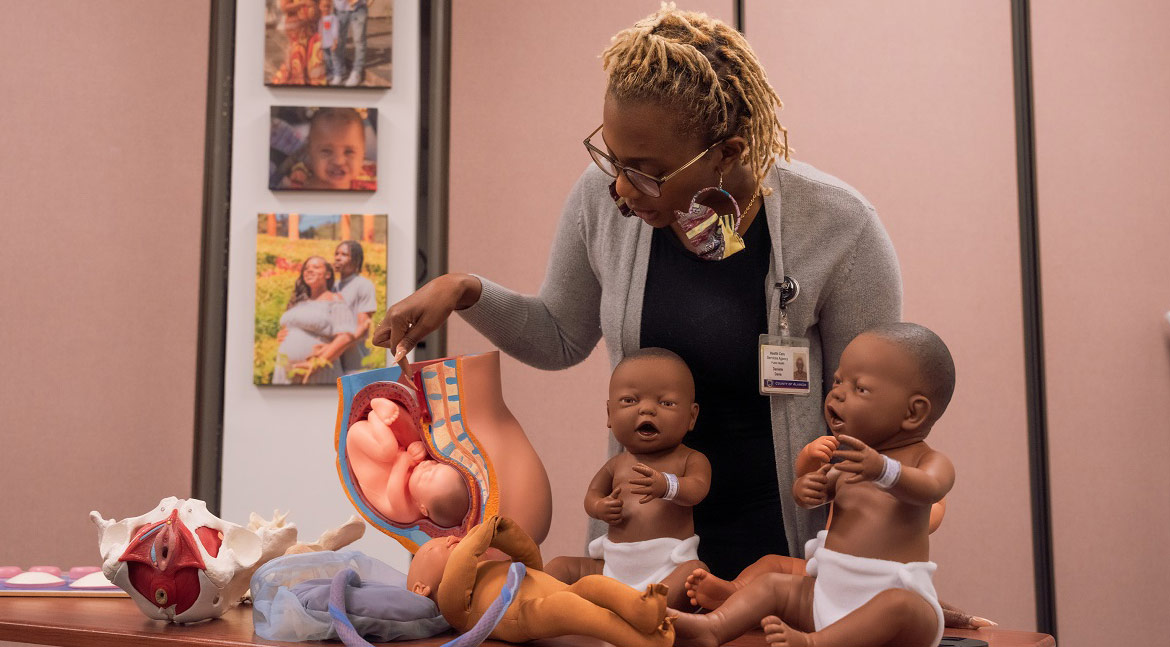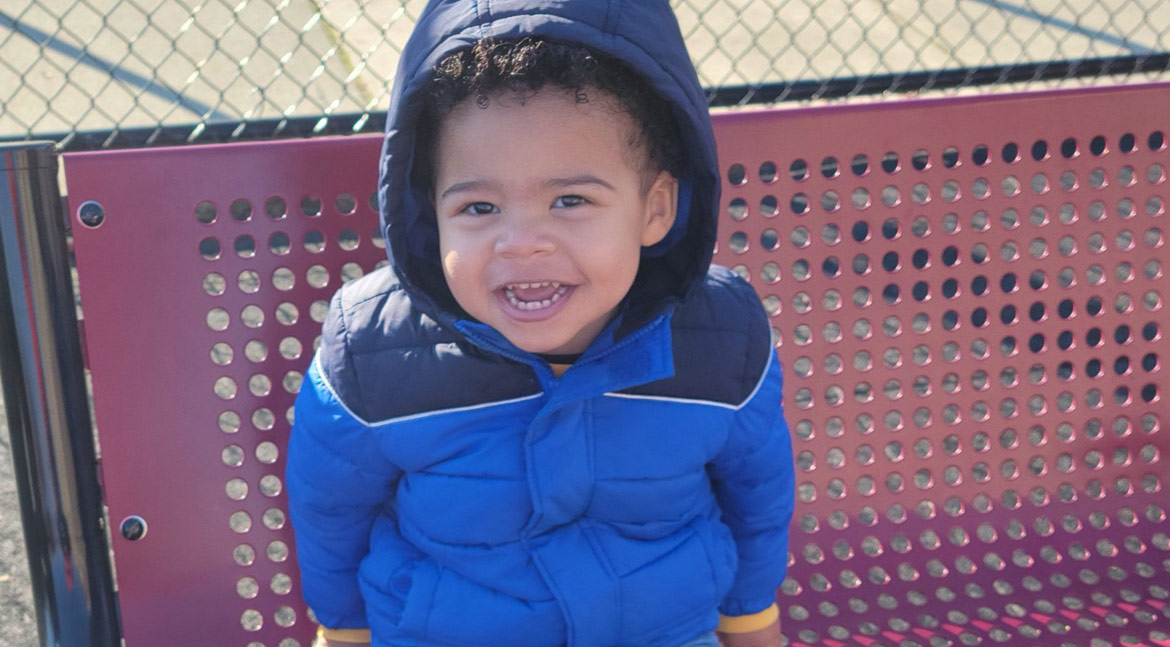
We spend a lot of time thinking about what infants and toddlers need to grow and thrive. As many of our grantee partners know well, the first 1000 days of life are a time of enormous opportunity – when the foundations of optimum health, growth, and neurodevelopment are established. Patterns take root, connections are made, and much of who we will become as an adult begins to take shape.
An organization’s development is similar. Roots & Wings has just reached its first 1000 days of growth, and I’m happy to say we’ve had a strong start and are developing well. Like a fast-growing newborn, we have made connections, formed patterns, and established habits.
Since the foundation opened its doors in 2020, we have grown quickly. In less than three years, Roots & Wings has made $82 million in grants (including more than $40 million in 2022 alone) across our four priority areas of basic needs, early learning, family safety, and health. We have also merged our founders’ original foundation, Firerose, under the Roots & Wings umbrella to better streamline and support all of our grantee partners.
Given our rapid growth, we are dedicating time in 2023 to getting to know our 250 nonprofit partners better and helping in ways that go “beyond the check.” This means we will be engaging more with our partners. We will be doing more site visits, learning about the complex challenges you face, and convening critical conversations. We will also find ways to use our foundation’s voice to communicate about your important work.

Photo courtesy of Nurse-Family Partnership
Programmatically, we will center our work more around children prenatal to age 3, lifting up strategies that support this crucial period of life. Our increased focus on very young children will not come at the expense of existing priorities, but instead we will be going deeper in areas like early brain development, maternal health, support services for new parents, and other strategies rooted in the social determinants of health.
Our team is calling 2023 a year of going “deeper not wider.” While we may add a few new grantees along the way, the months ahead will really be a time for Roots & Wings to learn more about, and with, our current partners in order to make a greater impact on our shared priorities. Grantmaking is a privilege which we take very seriously, and we want to ensure our work is rooted in principles that build trust with the partners we support.
As a three-year-old organization, we still have a lot of learning to do. We are thankful to have you as a partner on our developmental journey!

P.S. We invite you to share this newsletter with colleagues who may have an interest in the work Roots & Wings is doing.
Every day Black mothers and babies are experiencing preventable morbidity and mortality as a result of racism-based health disparities. BElovedBIRTH Black Centering, in Oakland, CA, is delivering a new approach: Group prenatal care by, for, and with Black people.

On February 13, 2023, the New York Times reported on a groundbreaking new study revealing how the risks of childbirth vary by both race and parental income, and how Black families, regardless of their socioeconomic status, are disproportionately affected.
Research proving how Black mothers and babies have the worst childbirth outcomes has long been understood, tragically. But the new study, which included some two million infants born to first-time mothers in the state of California from 2007 to 2016, was the first ever to combine income tax data with birth, death and hospitalization records and demographic data from the Census Bureau and the Social Security Administration.
The takeaway, according to the Times’ analysis: “For every 100,000 births, 173 of the babies born to the richest white mothers die before their first birthday. 350 babies born to the poorest white mothers die. 437 babies born to the richest Black mothers die. And 653 babies born to the poorest Black mothers die.”
Jyesha Wren, a Certified Nurse-Midwife who directs a transformative program called BElovedBIRTH Black Centering, sees the new findings as helpful, but not entirely surprising.

BEloved co-founder and Program Director Jyesha Wren, CNM, a midwife with Alameda Health System talking about breastfeeding with Tia Nomore, a BEloved alumni, local Oakland musical artist, and actor. (Photo courtesy of Alameda Health System.)
“Research like this affirms that racism is the root cause of these and other health disparities,” according to Wren. “It is important evidence to dispel the myth that these outcomes are just about poverty. They are not. We know that first hand from what we see in the hospital every day.”
BElovedBIRTH Black Centering, which Wren co-founded, is located at the Alameda Health System’s Highland Hospital in Oakland, CA. It was designed around an approach to healthcare delivery called centering, an evidence-based model in which prenatal care works best when it brings pregnant women together for their prenatal visits. Rooted in that framework, BEloved is the first program of its type working toward a world where Black people have all the support, loving care, and resources needed to have happy, healthy, and safe pregnancies, births, and postpartum recoveries, free from the harms of racism.
BEloved serves limited-income Medi-Cal patients throughout Alameda County and is designed around three evidence-based strategies:
Wren says the program aims to combat multiple, interrelated forms of racial discrimination that have historically combined to place expectant Black mothers at disproportionately high risk.
“We’re fighting systemic, institutionalized racism that has long been known to undermine trust through the delivery of biased care,” Wren explains. “Then there is structural racism, which shows up in the struggles Black mothers face daily — things like community-based violence, food deserts, housing insecurity, educational disparities and more. And finally, though no less significantly, there is weathering.”
Weathering is the condition through which Black women’s bodies age faster than white women’s from exposure to chronic stress linked to socioeconomic disadvantage and discrimination over the life course, thus making pregnancy riskier at an earlier age.
To combat these and other race-based challenges, the BEloved program coordinates expectant mothers into cohorts of 8 to 12 women grouped by due date. Each cohort of participants receives childbirth education, doula care, fresh produce boxes, prepared meal delivery, pregnancy and postpartum supplies, and even a photo shoot. Many of the services and products are provided by Black-owned or Black-led businesses based in Alameda County, an intentional strategy to help lift up the local economy.

Beloved co-founder Danielle Davis, a Program Specialist with the Maternal, Paternal, Child, & Adolescent Health Starting Out Strong Program, discusses the position of the baby in the womb and other aspects of reproductive anatomy including the birthing process. (Photo courtesy of Alameda Health System.)
“We have to promote joy and reduce stress to ensure a positive outcome for these amazing women,” Wren says. “Every step of the process is designed to celebrate Black love and positivity — from the safe space where we meet, to the food we provide, to the photos we take celebrating their pregnancy journey. These beautiful Black mamas are honored and celebrated and treated up like queens. What unfolds is an empowering process of transformation.”
The results are nothing short of transformational, as well, including lower risks of pregnancy complications, higher chances of having a full-term healthy weight baby, and so much more. More than 90% of women who participated in the BEloved program completely or strongly agreed that it helped lower their stress during pregnancy; 94% completely or strongly agreed that it lowered their stress postpartum; and 84% completely or strongly agreed that BEloved lactation support helped them breastfeed or body feed successfully.
Roots & Wings is proud to be a funder of the BElovedBIRTH Black Centering program, and Wren is eager to help others replicate the model she and her team have established at Alameda Health. That is why she and her team are working hard to document and package the tools and methods they have used to build BEloved. Wren also has a message for other foundations who are interested in the BEloved model.
“Funders need to realize that no one has ever designed an initiative like ours, at this scale, to address the racially-based disparities facing expectant Black mothers in America. The problem, and presumed solutions, have historically been overly focused on the numbers and overly medicalized,” she says. “We made a strategic decision early on to build our program around the Centering Pregnancy model — a proven, evidence-based approach — and that was very intentional. According to a large body of literature including Centering Healthcare Institute’s own data, Black folks get significant benefit from group prenatal care, racially concordant care and culturally aligned patient education”

Meet Courtney Jiles, a program officer at Roots & Wings who brings deep experience in children and family support to her role as a grant maker.
Tell us about your role at Roots & Wings, and what brought you to this work?
I have the honor of working with our early learning, basic needs and family safety partners at Roots & Wings. Great work is already being done in the communities we serve, so my role is to be an active thought-partner, listening for ways we can help, and doing what I can to bring more resources and support to the field. Prior to joining Roots & Wings, I worked for the Washington State Department of Children, Youth, & Families, where I supported the state’s home visiting program and parenting education programs. Children and their families have always had a special place in my heart, and I believe the more we can normalize good parenting, build protective factors, and support kids and their parents/caregivers, the better our world will be.
What have you learned in transitioning from your previous role within a state agency into your new role as a grantmaker?
I’ve learned that government and philanthropy are both critical to making change. Private philanthropy will never — and should never — supplant government’s resources or responsibility to support children and families in need. We have to recognize that our public institutions have significant bureaucratic and procedural limitations. Philanthropy, on the other hand, is more flexible, adaptive, and it can often move quickly to ensure processes are streamlined to better serve those in need. I believe foundations have an opportunity to take risks and confront inequities through innovative approaches, and this is what excites me most. Many of our partners are doing remarkable and innovative community-driven work, and I think we have opportunity to scale those approaches to amplify impact. Together, government and philanthropy can make significant change.
What is one thing you would like Roots & Wings grantee partners to know about the Foundation’s Family Safety portfolio?
Many people ask about how our Family Safety portfolio fits into our work given our focus on “helping children grow strong from the roots up.” In order for children to reach their full potential, they need to be healthy, safe, loved, and learning. I recently read that firearms are the leading cause of death for American children 18 and under. At Roots & Wings we believe that all people, including children, have the right to be treated humanely and free from violence in all forms, be it child abuse, domestic violence, gun violence, or inhumane practices within our criminal justice system. Our Family Safety portfolio focuses on each of these areas. By reducing abuse, neglect, violence, and the myriad challenges that lead far too many to become involved in the justice system, we will see better outcomes for children…and everyone!

Courtney’s two-year-old son Calais offers a daily reminder to stay curious and be present. Photo courtesy of Courtney Jiles.
2023 is a year of deepening growth for Roots & Wings. What does that look like in your program areas?
I am very excited about the year ahead. For me, this means more connecting and relationship-building while developing a deeper understanding of the root causes in each of my program areas. I hope to connect with our partners, convene them as we are able, and dig more substantively into their resources and materials to better understand their strategies. By learning more about partners’ successes, challenges, gaps, and goals, I hope to better understand the landscape and become a more effective funder.
What inspires you or gives you the greatest hope about where Roots & Wings is heading as the foundation grows?
I am excited by Roots & Wings’ trust-based approach to philanthropy. I have been on the other side — applying for grants, writing reports, and gathering data — and I know how time-consuming and stressful that can be. When we can reduce the administrative demands placed on our partners, they will hopefully be freed up to do what matters most, and we will be better positioned to support them in deeper, more useful ways. I am also inspired by my foundation colleagues every day. It is a privilege to be part of a dynamic team that is supportive, heart-driven, willing to challenge convention, and places our grantee partners first.
Do you have any heroes or role models that have shaped your life or made you the person you are today?
My parents are my role models. Growing up, they encouraged me to work hard and keep trying, even in the face of struggle or adversity. They were determined to give their children the opportunity to go to college and achieve our dreams. My parents taught me so much, and they continue to be my best cheerleaders.
How do you like to spend your free time?
My favorite moments are spending time with my husband and two-year old son. My husband is my greatest support and encourages me to dream big. My son reminds on a daily basis to stay curious and be present in the moment. You can often find us baking, going on long walks (especially to our local farmer’s market), and doing evening yoga.
